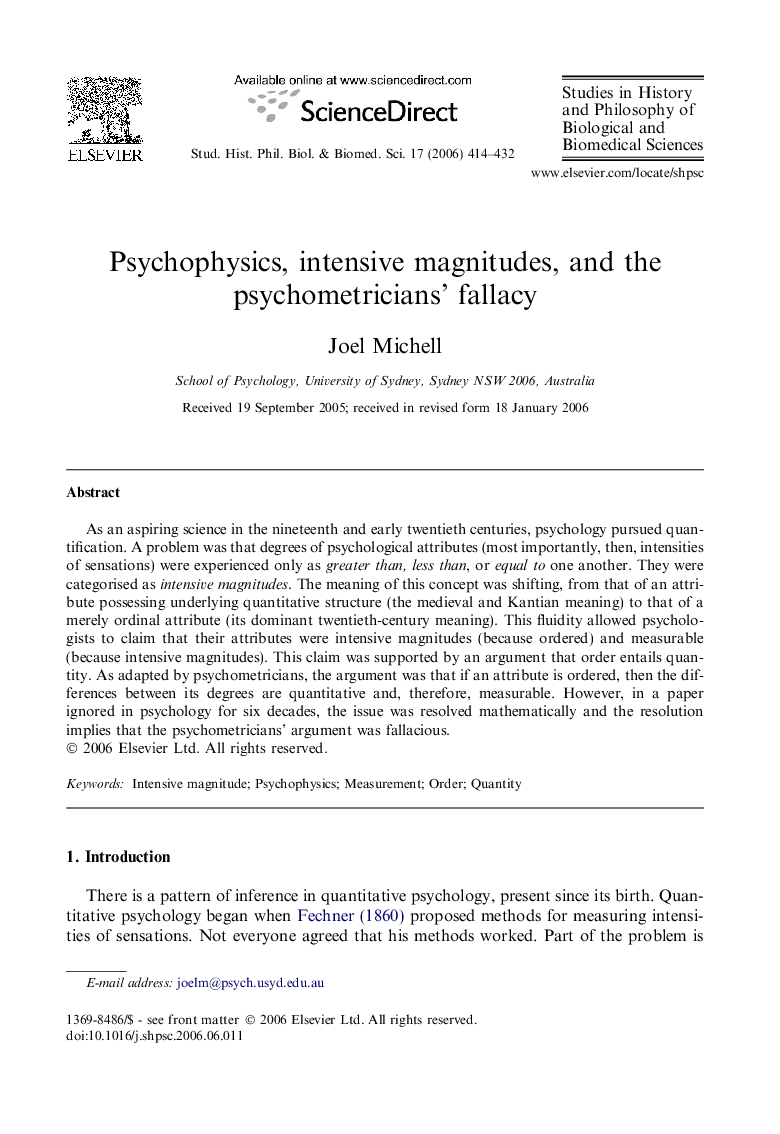| Article ID | Journal | Published Year | Pages | File Type |
|---|---|---|---|---|
| 1162117 | Studies in History and Philosophy of Science Part C: Studies in History and Philosophy of Biological and Biomedical Sciences | 2006 | 19 Pages |
As an aspiring science in the nineteenth and early twentieth centuries, psychology pursued quantification. A problem was that degrees of psychological attributes (most importantly, then, intensities of sensations) were experienced only as greater than, less than, or equal to one another. They were categorised as intensive magnitudes. The meaning of this concept was shifting, from that of an attribute possessing underlying quantitative structure (the medieval and Kantian meaning) to that of a merely ordinal attribute (its dominant twentieth-century meaning). This fluidity allowed psychologists to claim that their attributes were intensive magnitudes (because ordered) and measurable (because intensive magnitudes). This claim was supported by an argument that order entails quantity. As adapted by psychometricians, the argument was that if an attribute is ordered, then the differences between its degrees are quantitative and, therefore, measurable. However, in a paper ignored in psychology for six decades, the issue was resolved mathematically and the resolution implies that the psychometricians’ argument was fallacious.
